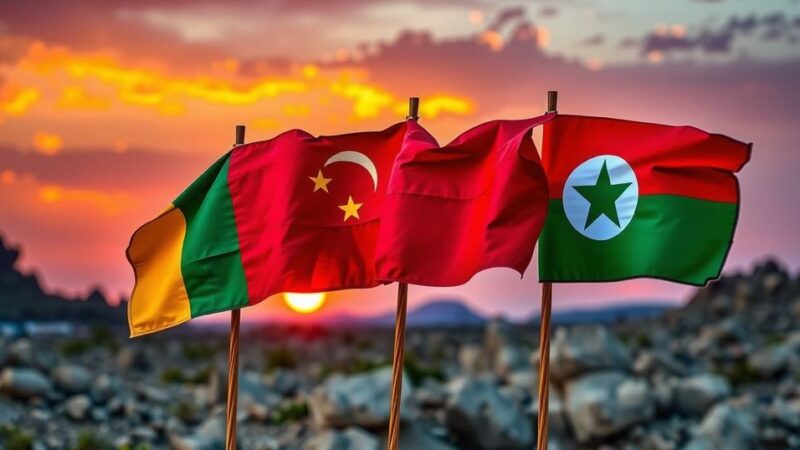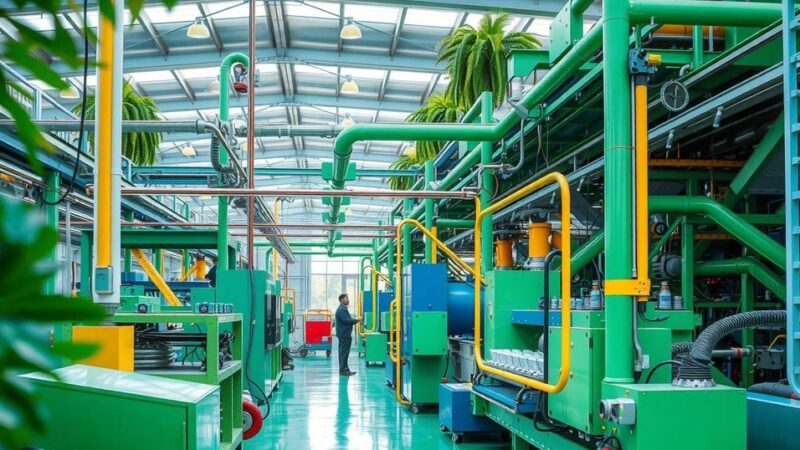Thailand remains the leading global orchid exporter and is enhancing rail ties with Laos and China. In Malaysia, trade grew by 5.9%, and Microsoft is expanding its AI infrastructure amidst export restrictions. ASEAN is fostering sustainable agriculture, while various measures are being instituted across the region to address issues from household debt to job opportunities for individuals with disabilities.
Thailand has successfully retained its position as the world’s leading exporter of orchids, demonstrating its significant role in the global floral market. Additionally, the nation is pursuing stronger rail connections with Laos and China aimed at creating an efficient freight network and enhancing logistics with Malaysia.
In February 2025, Malaysia witnessed robust trade growth, expanding by 5.9% year-on-year to achieve a turnover of 223.89 billion MYR (55.97 billion USD). Microsoft continues to advance its AI infrastructure in Malaysia, remaining vigilant regarding US semiconductor export restrictions, yet affirming that local operations remain unaffected.
Lithuania has moved forward with its plan to join the ASEAN Treaty of Amity and Cooperation, following approval from its Cabinet. Meanwhile, Malaysia has authorized the resumption of the search for the missing MH370 flight, a matter of ongoing concern for the families of the 239 passengers.
The semiconductor industry in Malaysia faces significant challenges, including a shortage of skilled labor, funding issues, and supply chain disruptions, all of which impede its competitiveness in the global market. Mexico is enhancing its cooperation with ASEAN, viewing membership in its Treaty of Amity and Cooperation as a pathway to deeper partnerships.
In addressing household debt, Thai officials, including Pichai, plan meetings with the Thai Bankers’ Association to develop effective solutions, recognizing the issue as a barrier to economic growth. ASEAN is also advancing toward sustainable agriculture, with Laos leading efforts to implement agroecological practices linked to green finance initiatives.
Singapore’s Deputy Prime Minister, Heng Swee Keat, emphasized the importance of global security and the challenges posed by emerging asymmetric threats stemming from technological advancements. In Hong Kong, entry procedures for ASEAN guests are being simplified to acknowledge their contributions to the region’s economic prosperity.
On the ground, there are concerning reports of up to 100,000 individuals employed in scam operations along the Thailand-Myanmar border. In response, Thailand is focusing on developing AI solutions for detecting financial fraud.
The Philippine government has issued a warning regarding human trafficking and has facilitated the repatriation of victims from Cambodia. In a shift towards stricter immigration policies, Thailand has decided to reduce the visa-free stay period for citizens of certain countries from 60 days to 30 days.
Singapore will introduce solar-powered electric boats to the Singapore River, with the first two vessels set to commence service soon. Moreover, Thailand will waive re-entry fees for migrant workers returning during the Songkran holiday, a measure effective from April 1 to May 15.
An earthquake measured by the GFZ struck North Sumatra, Indonesia, with a focal depth of 86 kilometers. Lastly, Thailand is expanding job opportunities for individuals with disabilities as mandated by labour laws, aimed at promoting inclusivity in the workforce. The Thai government is collaborating with global business leaders to enhance tourism investment in anticipation of 2025 being designated the Amazing Thailand Grand Tourism and Sports Year.
In summary, Thailand maintains its status as the top orchid exporter, while also focusing on infrastructural improvements and economic challenges such as household debt and employment for individuals with disabilities. Malaysia’s trade and technological advancements, alongside new ASEAN relations, showcase a commitment to regional cooperation and sustainable practices. As countries navigate evolving economic landscapes, initiatives from AI fraud detection to sustainable agriculture underscore a collective move toward progress and resilience in Southeast Asia.
Original Source: en.vietnamplus.vn






